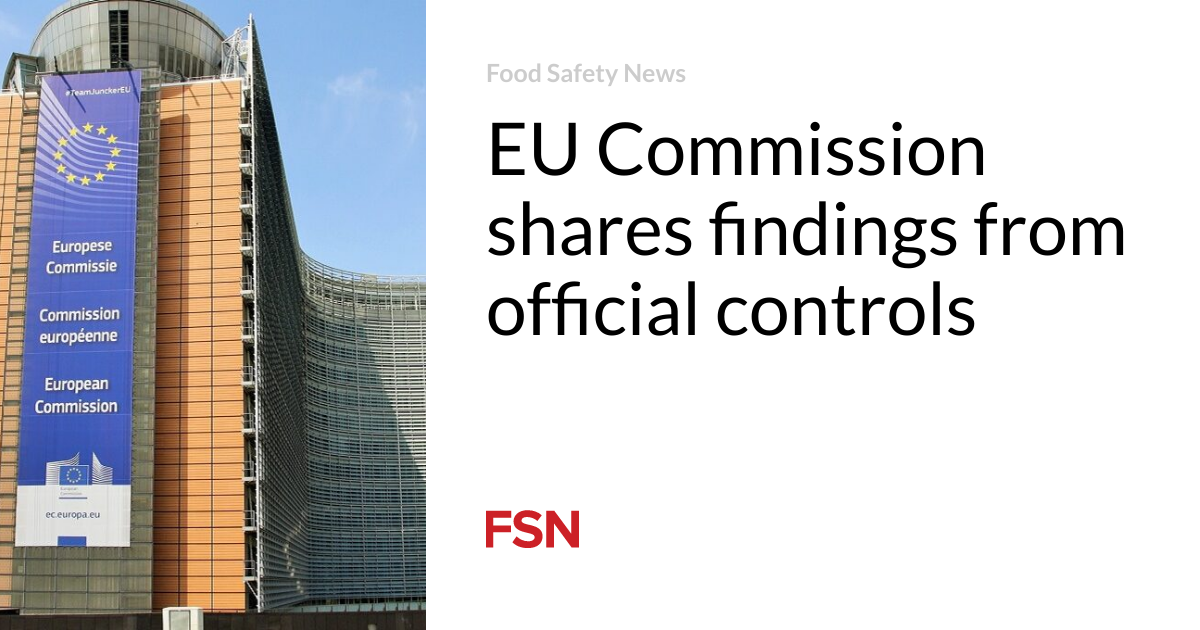An evaluation by the European Commission has came at some level of national authorities are largely doing ample to form definite corporations are complying with the rules, but there are areas for enchancment.
A document covers data submitted by European countries on their official controls and connected EU Commission activities in 2022.
In 2022, there had been 16.4 million corporations at some level of the scope of official controls and national authorities applied around 5 million controls on them. These checks identified 1.2 million non-compliances, leading to greater than 476,000 administrative penalties and 12,100 licensed actions.
Greater than 1 million controls had been applied at every meals carrier and meals wholesale levels. Non-compliances had been mainly came at some level of in meals carrier and animal transport. Penalties had been largely applied in meals carrier and meals wholesale.
Non-compliances and penalties for microbiological standards had been best likely within the original meat and meat product sectors. For pesticide residue considerations, fruit and vegetables was the principle class. For irradiation of meals, 85 non-compliances had been identified, leading to 63 administrative penalties and one case of licensed motion.
Causes for non-compliance encompass lack of files of laws by corporations and, in some cases, intentional misconduct. Considerations talked about encompass meals hygiene considerations, following documented procedures, and self-save watch over programs, and labeling.
Components impacting controls
Nationwide authorities completely supplied minute files on controls focusing on fraudulent and deceptive practices. Examples had been controls on honey, olive oil, exercise of ingredients previous their exercise-by date, forged animal passports, and illegal home slaughter.
The EU Commission highlighted factual practices, equivalent to Latvia having an indicator on the performance of officials; Belgian authorities defining barometers in step with the outcomes from official controls; and Danish authorities the exercise of the series of foodborne illness cases precipitated by Salmonella and the series of remembers.
Plenty of EU countries acknowledged the series of controls elevated when put next with previous years following a lifting of measures connected to the COVID-19 pandemic. Others indifferent reported negative results from such measures on their skill to completely create planned controls.
Other factors that had a negative impact on inspection packages had been insufficient sources (workers, financial, and equipment), animal well being (e.g. African swine fever and avian influenza) and plant well being considerations, Brexit, and the war in Ukraine.
Hungarian authorities reported on the sure impact of a more advisory technique, along with to enforcement motion. In Belgium, corporations licensed below the national validated self-checking guides are eligible for lower charges and a reduced frequency of official controls.
On sources, Czech Republic reported a lack of funding for laboratory diagnostics towards the close of the year, ensuing in minute sampling and testing. Bulgaria talked a pair of downward model within the series of officials, combined with a upward push in corporations.
EU Commission oversight
The EU Commission applied 120 checks on the official save watch over programs of EU countries in 2022. Sixteen connected to meals of animal foundation and 5 to meals of non-animal foundation. This resulted in 363 ideas to countries of which 77 connected to meals of animal foundation and 11 to meals of non-animal foundation.
Audits within the fisheries sector came at some level of problems within the registration of small fishing vessels, controls of landing web sites and connected operations and a lack of controls of vessels that land in diversified EU countries. Also, there was tell the exercise of different histamine ideas might maybe maybe well undermine the reliability or validity of test results. Authorities on the final had difficulties assembly planned inspection frequencies.
Audits within the meat sector came at some level of weaknesses within the educational and supervision of official veterinarians and the effectiveness of controls in low-throughput slaughterhouses. Frequent shortcomings within the dairy sector had been the enforcement of operator procedures on testing raw milk and verifying warmth remedy.
Audits on microbiological dangers in main manufacturing confirmed enhancements from previous visits. On the different hand, sprouting corporations had been indifferent no longer adequately controlled. Registration of main producers well-known to crimson meat up in remark that they might maybe maybe well additionally additionally be risk-assessed and incorporated within the save watch over machine at a suitable frequency.
(To affix a free subscription to Food Security Files, click right here.)
